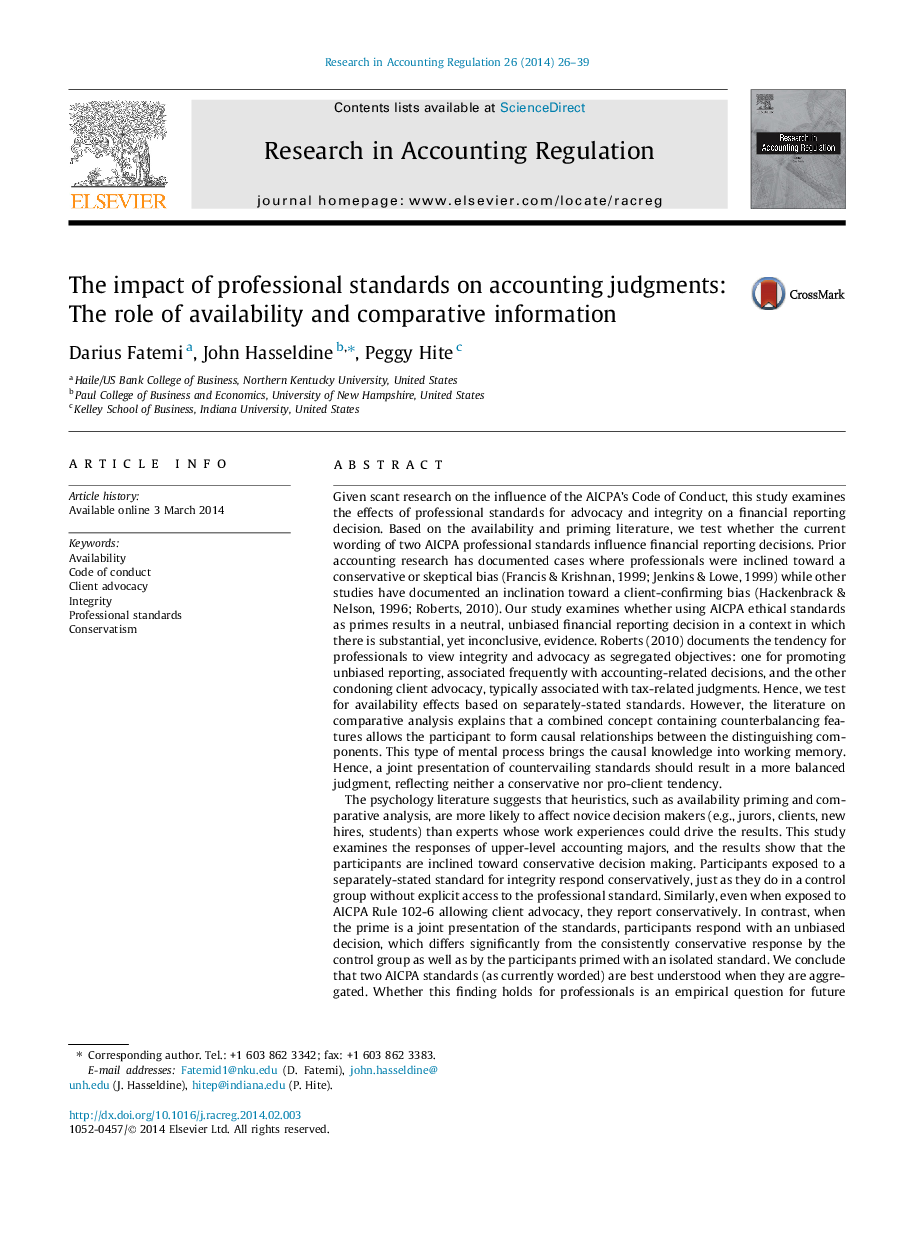| کد مقاله | کد نشریه | سال انتشار | مقاله انگلیسی | نسخه تمام متن |
|---|---|---|---|---|
| 1006666 | 938329 | 2014 | 14 صفحه PDF | دانلود رایگان |
Given scant research on the influence of the AICPA’s Code of Conduct, this study examines the effects of professional standards for advocacy and integrity on a financial reporting decision. Based on the availability and priming literature, we test whether the current wording of two AICPA professional standards influence financial reporting decisions. Prior accounting research has documented cases where professionals were inclined toward a conservative or skeptical bias (Francis & Krishnan, 1999; Jenkins & Lowe, 1999) while other studies have documented an inclination toward a client-confirming bias (Hackenbrack & Nelson, 1996; Roberts, 2010). Our study examines whether using AICPA ethical standards as primes results in a neutral, unbiased financial reporting decision in a context in which there is substantial, yet inconclusive, evidence. Roberts (2010) documents the tendency for professionals to view integrity and advocacy as segregated objectives: one for promoting unbiased reporting, associated frequently with accounting-related decisions, and the other condoning client advocacy, typically associated with tax-related judgments. Hence, we test for availability effects based on separately-stated standards. However, the literature on comparative analysis explains that a combined concept containing counterbalancing features allows the participant to form causal relationships between the distinguishing components. This type of mental process brings the causal knowledge into working memory. Hence, a joint presentation of countervailing standards should result in a more balanced judgment, reflecting neither a conservative nor pro-client tendency.The psychology literature suggests that heuristics, such as availability priming and comparative analysis, are more likely to affect novice decision makers (e.g., jurors, clients, new hires, students) than experts whose work experiences could drive the results. This study examines the responses of upper-level accounting majors, and the results show that the participants are inclined toward conservative decision making. Participants exposed to a separately-stated standard for integrity respond conservatively, just as they do in a control group without explicit access to the professional standard. Similarly, even when exposed to AICPA Rule 102-6 allowing client advocacy, they report conservatively. In contrast, when the prime is a joint presentation of the standards, participants respond with an unbiased decision, which differs significantly from the consistently conservative response by the control group as well as by the participants primed with an isolated standard. We conclude that two AICPA standards (as currently worded) are best understood when they are aggregated. Whether this finding holds for professionals is an empirical question for future research. The implication is that accountants’ decision making could be enhanced by a revised professional standard reminding them to jointly consider the goals of unbiased decision making and justifiable client advocacy.
Journal: Research in Accounting Regulation - Volume 26, Issue 1, April 2014, Pages 26–39
